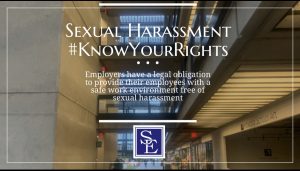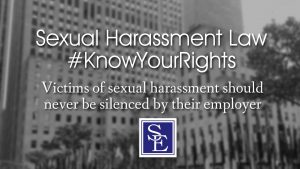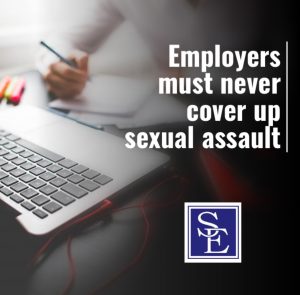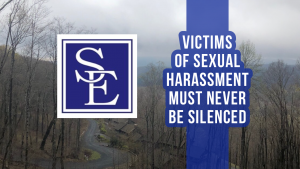The New Jersey Division of Civil Rights (DCR), in partnership with the New Jersey Coalition Against Sexual Assault (NJCASA), has released its report and recommendations to address the systemic problem of sexual harassment in New Jersey. The report entitled “Preventing and Eliminating Sexual Harassment” is the culmination of information, expertise and testimony provided by various experts, advocates, survivors and state governmental organizations concerning sexual harassment and abuse within both the workplace and in places of public accommodation. Following the release of the report, Governor Murphy announced that he will support several of the legislative initiatives recommended by the DCR to strengthen New Jersey sexual harassment law.
 Sexual harassment at the workplace and in places of public accommodation are prohibited under the New Jersey Law Against Discrimination. Under New Jersey state law, employers and places of public accommodation have a legal obligation to have effective anti-harassment policies in place to prevent, stop and remediate workplace sexual harassment. The factors used by courts to determine whether an employer’s anti-harassment policy is effective are: (1) whether there are formal policies prohibiting harassment in the workplace; (2) whether there are formal and informal complaint structures for employees to report violations of the policy; (3) whether the employer provides anti-harassment training to all employees, including mandatory training for supervisors and managers; (4) whether the employer has effective sensing or monitoring mechanisms to check the trustworthiness of the policies and complaint structures; and (5) whether the employer has demonstrated an unequivocal commitment from the highest levels of the employer that harassment will not be tolerated, and commitment to the policies by consistent practice.
Sexual harassment at the workplace and in places of public accommodation are prohibited under the New Jersey Law Against Discrimination. Under New Jersey state law, employers and places of public accommodation have a legal obligation to have effective anti-harassment policies in place to prevent, stop and remediate workplace sexual harassment. The factors used by courts to determine whether an employer’s anti-harassment policy is effective are: (1) whether there are formal policies prohibiting harassment in the workplace; (2) whether there are formal and informal complaint structures for employees to report violations of the policy; (3) whether the employer provides anti-harassment training to all employees, including mandatory training for supervisors and managers; (4) whether the employer has effective sensing or monitoring mechanisms to check the trustworthiness of the policies and complaint structures; and (5) whether the employer has demonstrated an unequivocal commitment from the highest levels of the employer that harassment will not be tolerated, and commitment to the policies by consistent practice.
Employers who fail to have effective anti-harassment policies in place can be held liable for the sexual harassment of employees by supervisors, co-employees, customers or other persons associated with the business. Similarly, places of public accommodations must also take affirmative and proactive steps to assure invitees are not subjected to sexual harassment while at their place of public accommodation. Places of public accommodation are businesses, agencies, organizations or other entities that are open to the public. For example, schools, retail establishments, governmental buildings and governmental campaigns are viewed as places of public accommodation. As with any employer, places of public accommodations have the same duties to have effective anti-harassment policies in place that prevent and keep persons safe from sexual harassment.
 New Jersey Employment Lawyers Blog
New Jersey Employment Lawyers Blog






